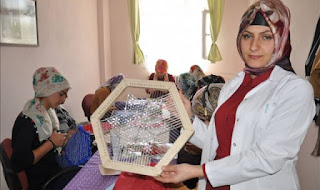Joe Klock Explains How (Not) to Destroy A Law Firm

It's hard to believe, but Joe -- with a straight face -- is dispensing grandfatherly advice on how to open a foreign office:
Steel Hector & Davis, once among Florida’s largest independent law firms, opened offices in Brazil, the Dominican Republic, Venezuela and the United Kingdom, and forged associations with a firm in Chile and another in Argentina. But in 2005, the Miami-based firm merged with Squire Sanders & Dempsey of Cleveland due to financial problems.Note -- the Brazilian office. The one everyone on the street knew was a disaster. The one they were endlessly building. The one with the massive cost overruns. The one that was an unbelievable, insatiable money pit. Or so I heard.
Since the merger, Squire Sanders has retained four of the international offices and retained the associations with the two firms in Chile and Argentina. The only office not retained was in Sao Paulo, Brazil, said Albert del Castillo, a partner and Florida practice coordinator.
Joseph P. Klock, the former Steel Hector & Davis managing partner blamed by many for the firm’s woes, acknowledged he made mistakes with the firm’s international expansion but noted most of the offices are still open.
“I’ve made bad decisions with the best of them and have had an opportunity to look at all of the various models,” said Klock, now a partner with Epstein Becker & Green in Miami.
“A mistake is something that costs more than it has to and takes more time than it has to,” he said. “It’s not a mistake that we shouldn’t have done it. We never opened a foreign office that we closed.”
“It’s not a business for the faint of heart,” he added.
Klock said there are three ways to go about expanding a law firm internationally. One way is to open a new office from scratch bringing in attorneys and staffers.
“This can be a very successful model if you’re extremely rich and you have long staying power,” he said. “It has its pitfalls. It’s expensive and I’m not sure you get to learn about the habits of the jurisdiction.”
The second option is where a U.S. firm merges with a firm in another country. However, he said top leadership in the firm’s U.S. offices and in the foreign office must agree on how to operate.
“It requires the firm inside the United States to adopt a more open-minded view toward how organizations are run,” he said. “It’s important to get the primary partners in the office to become integrated into how the international firm thinks, otherwise they’ll separate.”
A third model is to partner with another firm in a foreign country, lend the name to the foreign affiliate, but the affiliate “maintains its economic interests separately,” Klock said.
He said the key thing to do when operating internationally is to be flexible and amenable to different ways of doing business.
Another option is to join an international club or association of law firms. That’s the approach Epstein Becker has taken in order to serve its clients’ international needs, he said. The firm is a member of the International Lawyers Network, which bills itself as an association of 89 law firms which operate in 69 countries that employ 5,000 lawyers worldwide.
But other than that everything worked great!
What does it tell you that Joe's new firm is not following his prior, successful model?
And I love Joe's exculpatory definition of "mistake," essentially sucking all meaning from the word. Let's try this -- is it a mistake when you are unceremoniously ousted by your partners and your storied, independent, and legendary law firm has to be subsumed and lose its identity?
"Only if I say it was."


Yorumlar
Yorum Gönder